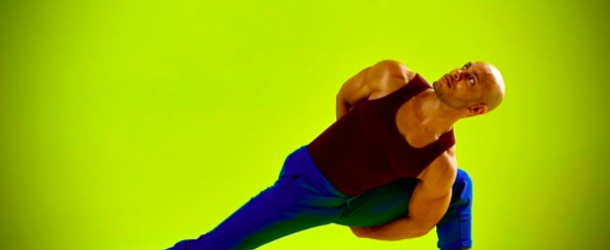His arms sway back and forth, coordinating to the quickness of his feet. Shimmying his shoulders while his muscles shake to the beat of Latin music, José Ozuna’s love of dance vibrates through every part of his body. His love of learning about the body itself began as a medical student.
Ozuna has performed in multiple off-Broadway shows in Washington D.C. and New York, has been working in the most famous dance company, The Alvin Ailey American Dance Theater. He was in a nine-time Helen Hayes award winning show, In the Heights-Spanish Premiere. Without knowing where his passion would take him, Ozuna took his time before leaping into the crowd.
Ozuna grew up watching his father dance at parties. He recalls the smiles plastered on everyone’s face in the room, hearing Latin music reverberating through the walls, watching his father dance with family members. No one in the family was a professional dancer but their love of movement seemed programmed into their DNA.
Only 19 years old and still living in the Dominican Republic, Ozuna heard from his friend that there was going to be a dance class. He agreed to come along and immediately fell in love. He decided that this is what he wanted to do as a profession. Remembering how difficult it would be to tell his parents that he wants to dance professionally, Ozuna held off for as long as he could. But a sensation heating up inside of him couldn’t hold in any longer. “It’s really hard to be a dancer in the Dominican Republic,” he says. “When I told people I’m going to dance, they asked ‘OK but, what is your real job.’” Struggling to have his loved ones understand that he wanted to change career paths, Ozuna continued to improve his technique.
After numerous “No’s” during auditions, Ozuna made sure not to stop. “There will be many ‘No’s’ before you get that one ‘Yes’ but, auditioning alone will already be something to put onto your resume,’ he says. “You’ll at least have the experience.” Over time, Ozuna managed to land some prominent parts in musical theater productions in the Dominican Republic.
His experience continued to build, and with his family finally supporting his decisions, Ozuna decided in his mid 20s to move to New York City.
Settling into a new environment with big ambitions, Ozuna received a call from his family. Picking up the phone, his smile melted into a frown. Heart beating fast, he urgently packed up his thoughts into a mental suitcase and rushed back to the Dominican Republic. His stepfather had been killed, and José knew he had to be there for his family, especially his mother.
After days of grieving, supporting, and thinking, Ozuna struggled again to make any decisions about going back to the U.S. He couldn’t leave his mother in such a state. He knew what would help; he went to his second home, his dance studio.
“I took my time to go away and to have my personal moment,” he says. “I danced. I still remember there was a moment that I started crying because of all the emotions that I had in me.”
Ozuna understood from that moment, he had to dance.
Being back in the U.S., in the city that never sleeps, Ozuna excitedly embraces its opportunities. With loads of auditions and classes, something else caught Ozuna’s attention. A friend said she could help transfer his credits so he could go back to earn a degree. Ozuna was ready for the challenge. It had been years since he was in school but his determination was stronger than ever.
After multiple phone calls, meetings, and applications, José was finally able to transfer his credits, allowing him to attend college and realize his dream of receiving a degree.
Now, in his 30s, Ozuna majors in human biology and minors in dance at Hunter College. Although he has set his mind on dancing, his love for medicine never went away. With deep creases set between his brows, he says, “I would love to therapeutically help people with movement. Anybody can move, you know?” He recalls the moment he learned his stepfather had been killed. “If it helped me, it can help anybody.”
Already dark outside just past six in the evening, the small Hunter dance studio, open for anyone to practice, is still. Ozuna is the only dancer in the room. Sweat drips down his forehead and chest, turning his lime-green shirt a darker shade; he’s spinning and turning quickly to fast-paced Bollywood music. Breathing heavily, he continues to smile and gesture as he lands his final pose. Laughing with exhaustion, he grabs his iPhone, and begins to scroll down his music while wiping the sweat from his eyes. He’s searching for another song to pour his feelings into while dancing. “It’s important to know the roots of the dance you’re doing, the culture,” he says. “Otherwise there’s no purpose in the movements you do. You’re just doing steps.”


